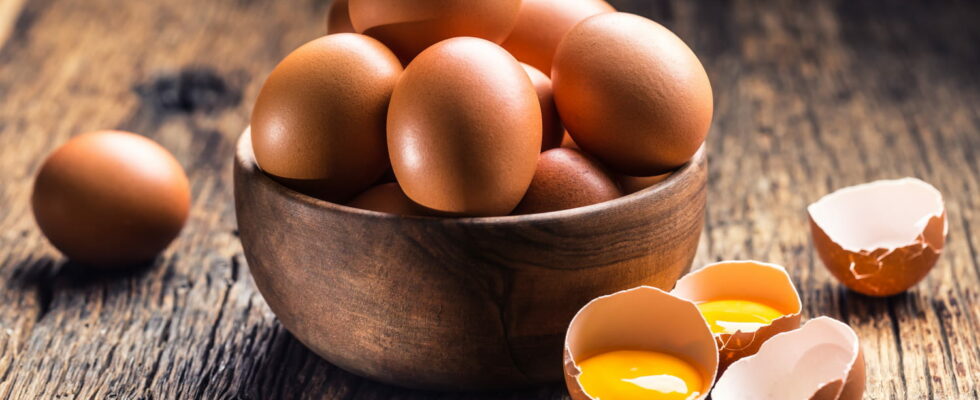Are eggs bad for our cholesterol levels? To find out, a scientist ate 24 eggs a day for a month, and the result of his experiment was very surprising!
Cholesterol plays an important role in the body, including creating hormones, digestion, building cell membranes and producing vitamin D. But too much of this lipid can pose a health risk, such as example by causing heart problems.
To avoid reaching such extremes, you absolutely must monitor your diet. Perhaps you are aware of this popular belief that eggs, especially the yolk, negatively affect cholesterol levels. Be careful, however, that you should not confuse “good” and “bad” cholesterol.
Indeed, low levels of low-density lipoprotein (LDL) – the “bad” cholesterol – are considered harmful because they can build up in the arteries, increasing the risk of heart disease and stroke. In contrast, high-density lipoprotein (HDL) – the “good” cholesterol – helps remove excess LDL from the bloodstream by transporting it to the liver to be broken down and eliminated from the body.
Recent studies, however, show that dietary cholesterol may not have as direct an impact on blood cholesterol as previously thought. Wanting to discover the truth, Nick Norwitz, a doctoral student at Harvard University, embarked on an ambitious experiment: he consumed 720 eggs over the course of a month, or an average of 24 eggs per day, to see their effect on cholesterol level.
With each egg containing approximately 186 mg of cholesterol, this makes it an important factor in daily cholesterol intake. Eating 720 eggs per month equals some 133,200 milligrams of cholesterol. Nick Norwitz hypothesized, before his experiment, that consuming them would not increase his LDL or “bad” cholesterol levels at the end of the month.
The result was extremely surprising because, although HDL cholesterol intake skyrocketed during the experiment, Nick Norwitz’s LDL cholesterol dropped by 18%. So while many experts have long warned that eggs could lead to increased LDL levels, Norwitz’s experience ultimately suggests otherwise.
The young man, however, introduced an important factor into his diet as, over the past two weeks, he began ingesting 60 grams of carbohydrates per day, mainly from bananas, blueberries and strawberries. It was this addition of carbohydrates that led to a dramatic drop in cholesterol levels, due to a metabolic change after adapting to the low-carb diet.
But then, why don’t eggs increase cholesterol levels? One scientific theory is that HDL cholesterol binds to specific cell receptors in the intestine, causing the release of a hormone called cholesin. This hormone then signals the liver to produce less LDL cholesterol, thus maintaining a balance in the body. Please note that this test was only carried out on a single person, which means that it does not take into account genetic variations, metabolism or lifestyle factors, which could have a significant impact on the result of such a diet.
